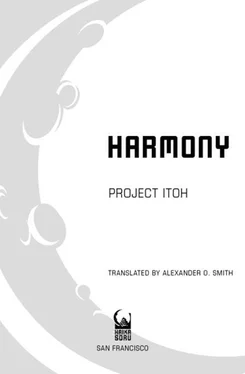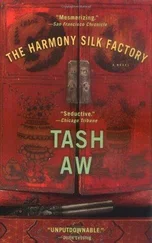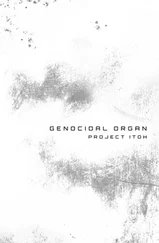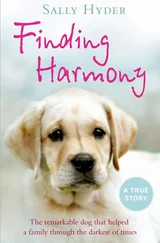Itoh, Project - Harmony
Здесь есть возможность читать онлайн «Itoh, Project - Harmony» весь текст электронной книги совершенно бесплатно (целиком полную версию без сокращений). В некоторых случаях можно слушать аудио, скачать через торрент в формате fb2 и присутствует краткое содержание. Год выпуска: 2010, Издательство: Haikasoru/VIZ Media, Жанр: Старинная литература, на английском языке. Описание произведения, (предисловие) а так же отзывы посетителей доступны на портале библиотеки ЛибКат.
- Название:Harmony
- Автор:
- Издательство:Haikasoru/VIZ Media
- Жанр:
- Год:2010
- ISBN:нет данных
- Рейтинг книги:4.33 / 5. Голосов: 3
-
Избранное:Добавить в избранное
- Отзывы:
-
Ваша оценка:
- 80
- 1
- 2
- 3
- 4
- 5
Harmony: краткое содержание, описание и аннотация
Предлагаем к чтению аннотацию, описание, краткое содержание или предисловие (зависит от того, что написал сам автор книги «Harmony»). Если вы не нашли необходимую информацию о книге — напишите в комментариях, мы постараемся отыскать её.
Harmony — читать онлайн бесплатно полную книгу (весь текст) целиком
Ниже представлен текст книги, разбитый по страницам. Система сохранения места последней прочитанной страницы, позволяет с удобством читать онлайн бесплатно книгу «Harmony», без необходимости каждый раз заново искать на чём Вы остановились. Поставьте закладку, и сможете в любой момент перейти на страницу, на которой закончили чтение.
Интервал:
Закладка:
There were no clouds. The humidity was low, but the sun didn’t feel too hot as of yet. Despite the lack of a path, this was where the Chechen guerrillas had made their home, and I didn’t find the going terribly difficult. I could feel the air in my lungs growing thinner as I climbed. A lack of oxygen wasn’t something even WatchMe and a subdermal medcare unit could fix. I had gone off-line some time ago for that matter. My AR was a local simulation, working off the GPS I carried.
“Being this alone is actually kind of exciting,” I said to the goat.
The goat plodded along in silence.
After three hours in the trackless wilderness, I found something resembling a proper path. According to my navigator, I had another six hours of this before I reached my destination. The path was fairly wide—I even saw traces of tire tracks. Probably left by the Russians during earlier conflicts in the region.
Every once in a while I rested to fill my mouth with water and acclimatize to the air. The transport goat had its own recycler unit embedded, so it didn’t require much in the way of drink. I touched his back, as though it were a pet. It wasn’t all that different from a regular animal. The skin was warm beneath a layer of fur. I had seen a civilian militia charge an army riding on these once, though I had forgotten whether it was in Niger or some other part of Africa.
The army in that conflict had been comprised entirely of remote surrogates. The militia had set off an electromagnetic pulse in the area, cutting the connection between the command center and the surrogates and forcing them to enter automated battle mode. Faced with a completely unexpected cybernetic cavalry charge, the surrogate troops had been decimated.
My goat was a slightly different beast than the ones they had ridden on, mine having been specially engineered for transporting goods in these mountains. The machine gun turret had been added on almost as an afterthought, and frankly I didn’t really see the point. I stood, returned my canteen to its sack on the goat’s back, checked the pistol in the holster at my side, and resumed my ascent.
Climb. Rest. Climb. Rest. Even as I grew used to the air, I could feel my stamina failing. This was a natural sensation that came with a reduction in oxygen—a physical symptom that my internal medcare plant couldn’t hide by tweaking my nervous system as it did with pain and other discomfort. Proof that I was alive.
As history marched on, the range of natural experiences considered acceptable in life had shrunk. Where, I wondered, does one draw the line? Why form a wall around the soul or human consciousness? We had already conquered most natural diseases. We had elevated the myth of a normalized human body to a high public standard.
My thoughts drifted while I climbed.
Take diabetes, for example. In its original form, diabetes was a feature humans had developed that helped to deal with cold climates. Water with glucose has a freezing point below zero—beneficial for people faced with the sudden onset of cold temperatures. Even if the sugar destroyed your veins and your kidneys, you’d still live a decade or two, and if you managed to reproduce during that time it was a big win for your DNA. Diabetes was a vital part of our slipshod evolution.
Qualities that were vital in some circumstances became useless or even dangerous when those circumstances changed. We are just collections of DNA optimized for particular places and times. The human genome was a patchwork of solutions for a thousand different problems. It was easy to think of evolution as meaning forward progress, when in reality we, and all living things, were just assorted attempts at survival.
So why put human consciousness up on the altar? Why worship this strange artifact we had attained? Morality, holiness—these were just things our brains picked up along the way, pieces of the patchwork. We only experienced sadness and joy because they benefited our survival in a particular environment. That said, I couldn’t understand how something like joy was really vital. Nor did I know why sadness and despair had helped us survive.
Still, like diabetes, what if the useful shelf life of our emotions had expired some time ago? What if an environment that required us to feel emotions and possess a consciousness was gone? Why hesitate to cure our brains of emotions and consciousness like we had cured our bodies of diabetes?
Mankind had once required anger.
Mankind had once required joy.
Mankind had once required sadness.
Mankind had once required happiness.
Once, once, once.
My epitaph for an environment, and an age, that had disappeared.
Mankind had once required the belief that “I” was “I.”
Keita Saeki, Gabrielle Étaín, and Nuada Kirie.
My encounters with them had removed any basis I had felt for “me” to exist. Like what my father had said about people with the recessive gene for deafness coupling in Martha’s Vineyard, here people with the recessive gene for the absence of consciousness coupled, and that was normal.
Maybe as long as a society based on mutual aid was in place, outmoded features like consciousness were fated to disappear. Maybe we should embrace the social systems we’d developed and throw out the spawning pool of opposition, hesitation, and anguish that was consciousness altogether.
Where are the whys that drive me located?
Where are the words that protect my soul?
Wasn’t my desire to avenge Cian Reikado and my father’s death just the vestiges of a once-vital but now derelict function of my obsolete simian midbrain?
In the past, it was religion that guaranteed “I” was “I.” Everything had been laid out by God, so it wasn’t our place to question things. Now society had entirely lost the functions that religion once performed. Because once we accepted that emotions and all other phenomena occurring in the brain were just traits that happened to be beneficial to our survival at some point in the past, most ideas of morality lost their absolute basis. A morality without absolute conviction—an objective morality—was weak. History contained ample proof of this.
At any rate, today I was going to meet Miach Mihie.
I expected she would have some answers to all this.
After several more breaks, I reached the bunker just as the sun was slipping below the jagged horizon. I could see clouds gathering far off in the distance, and I wondered what elevation I had reached.
One corner of the bunker jutted out from the mountain face, a smooth panel of concrete against the rough edges of rock, with an open doorway in its center.
“Wait here, goaty.”
I used my fingerprint to lock the goat’s weapon systems and checked my own sidearm.
“Okay. I can do this,” I muttered to myself, stepping into the reinforced concrete bunker dug into the mountainside.
“Hello there, Tuan. How long has it been, thirteen years?” came a voice from the darkness inside. The only sounds were the dripping of water and the scuffing of my feet on the ground. I pulled my gun from its holster, the sound of my clothes rubbing together loud in my ears.
“You won’t need your gun. We’re the only ones here, Tuan. Just me and you.”
One step.
Then another.
I switched my AR to light-enhancement mode, revealing the interior of the dimly lit bunker.
“I knew you’d come. I knew you were the only one who’d come.”
I had left the entrance behind me now, where the goat patiently awaited my return.
“I’m right over here, Tuan.”
Miach Mihie appeared as if out of thin air, right in front of the raised barrel of my gun.
She looked almost the same as she had the last time I saw her, when we had been little girls.
Читать дальшеИнтервал:
Закладка:
Похожие книги на «Harmony»
Представляем Вашему вниманию похожие книги на «Harmony» списком для выбора. Мы отобрали схожую по названию и смыслу литературу в надежде предоставить читателям больше вариантов отыскать новые, интересные, ещё непрочитанные произведения.
Обсуждение, отзывы о книге «Harmony» и просто собственные мнения читателей. Оставьте ваши комментарии, напишите, что Вы думаете о произведении, его смысле или главных героях. Укажите что конкретно понравилось, а что нет, и почему Вы так считаете.












